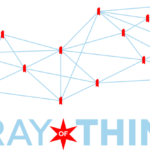 Today the Smart Chicago Collaborative helped the City of Chicago launch OpenGrid— a free, browser-based, open source mapping platform displaying Chicago’s robust collection of open datasets.
Today the Smart Chicago Collaborative helped the City of Chicago launch OpenGrid— a free, browser-based, open source mapping platform displaying Chicago’s robust collection of open datasets.
OpenGrid.io was launched this morning at an event at the University of Illinois Chicago Electronic Visualization Labratory. Chief Information Officer Brenna Berman, Chief Data Officer Tom Schenk, and the Smart Chicago Collaborative kicked off the official launch and demo.
Introducing OpenGrid, an interactive way for you to explore #opendata https://t.co/OqMMvqemC1 pic.twitter.com/GX0t9h6pjf
— Tom Schenk Jr. (@ChicagoCDO) January 19, 2016
.@CityChicagoCIO @danxoneil @ChicagoCDO launch OpenGrid #opensource map fueled by city data https://t.co/EmrTQQjNlS pic.twitter.com/xAYn5lMMiU
— Smart Chicago (@SmartChicago) January 19, 2016
Opengrid.io demo at the UIC Cave! @SmartChicago @ChicagoCDO @CityChicagoCIO #opendata #smartcities pic.twitter.com/m4wrBuz4tj
— Denise Linn (@DKLinn) January 19, 2016
Congrats to @SmartChicago, @argonne, @UofC and all else involved in launching the highly innovative #OpenGrid pic.twitter.com/b2cYQcaAvQ
— EKI-Digital (@EKIdigital) January 19, 2016
OpenGrid is Public
This important work goes back to WindyGrid, the City’s internal tool displaying all past and present city data. Now, through OpenGrid, the ability to see and layer information about Chicago is in the hands of individual residents. Anyone with Internet access can see Chicago’s data come alive in relation to their homes, communities, and workplaces.
Here is the OpenGrid introductory tutorial:
OpenGrid is Open Source
The City first articulated its plans to build a public-facing WindyGrid and open up the application source code in the 18-month Tech Plan Update. The Plan stated OpenGrid would be “the first open source situational awareness system that other municipalities can use and build upon.”
OpenGrid is an #opensource project. Take a look at the code at https://t.co/9GLcnrZrGF We’re looking forward to working with you on it
— Tom Schenk Jr. (@ChicagoCDO) January 19, 2016
Smart Chicago’s Role in OpenGrid
Through support from the MacArthur Foundation, Smart Chicago supported the OpenGrid project by creating a service layer to plenar.io, a spatio-temporal open data platform. This layer serves as a data feed to OpenGrid— if the data is in plenar.io, it can get into OpenGrid.
We worked with technology partner Uturn Data Solutions to create the code that drives the data. This easy-to-deploy stack can be used by any municipality or organization to display open datasets on a map. This entire project is dependent on our Amazon Web Services account, which is maintained by Uturn. We also serve many Chicago-based technologists via our Developer Resources program,
We’re proud of our continued work with the City to deliver on the Tech Plan, with local developers to encourage their role in the civic tech ecosystem, and with the University of Chicago to support the plenar.io platform for data ingest.
Here’s a set of photos from launch day:





